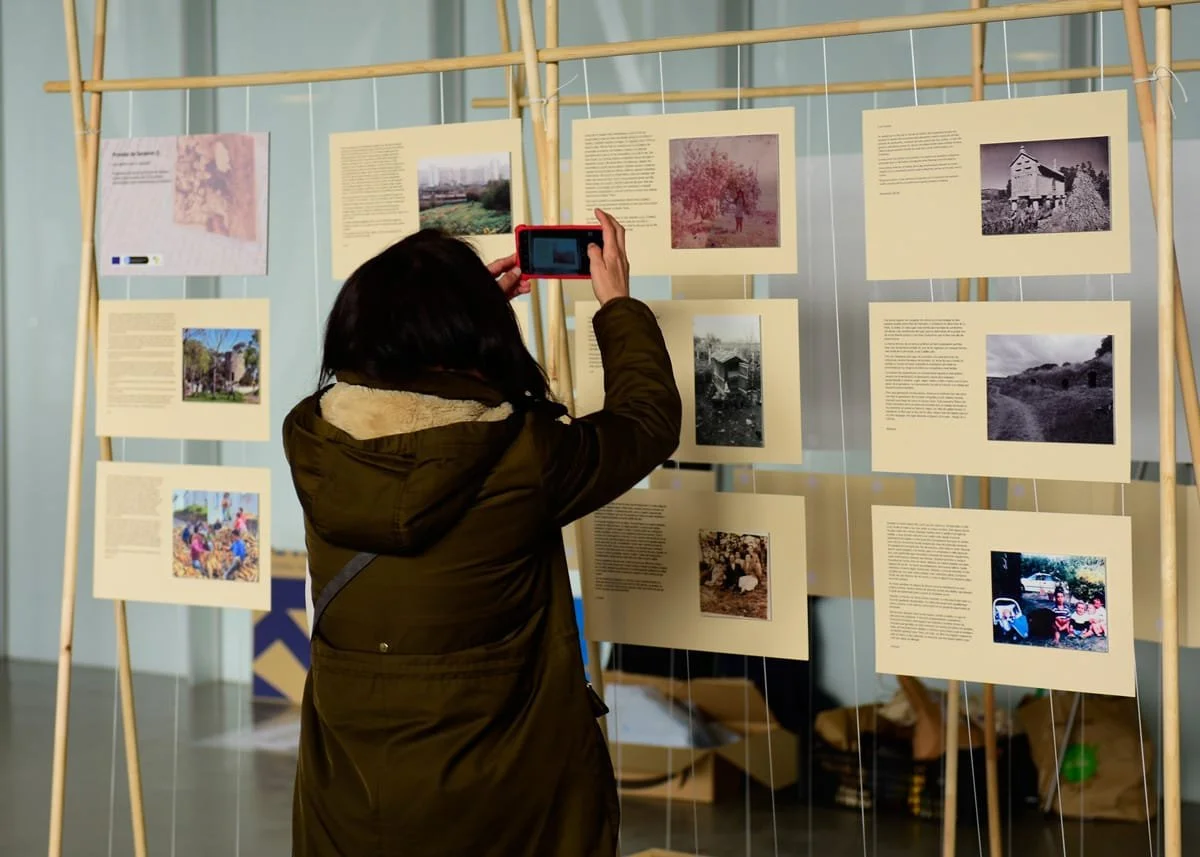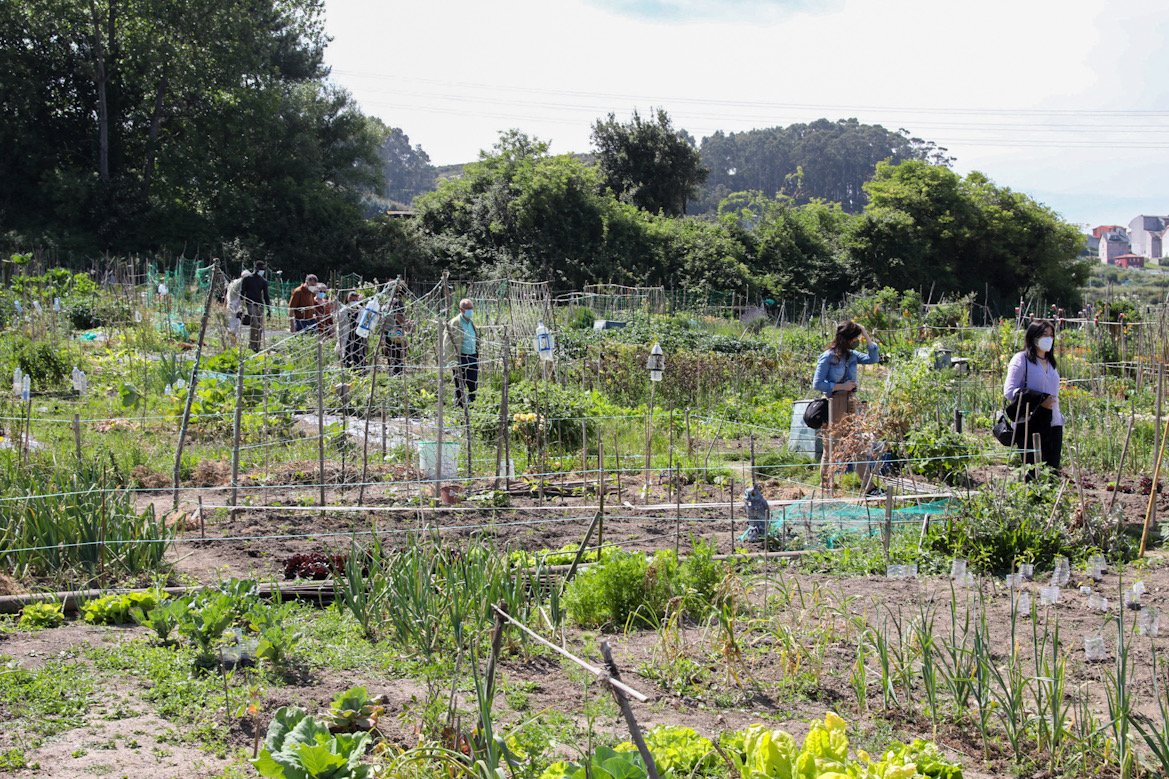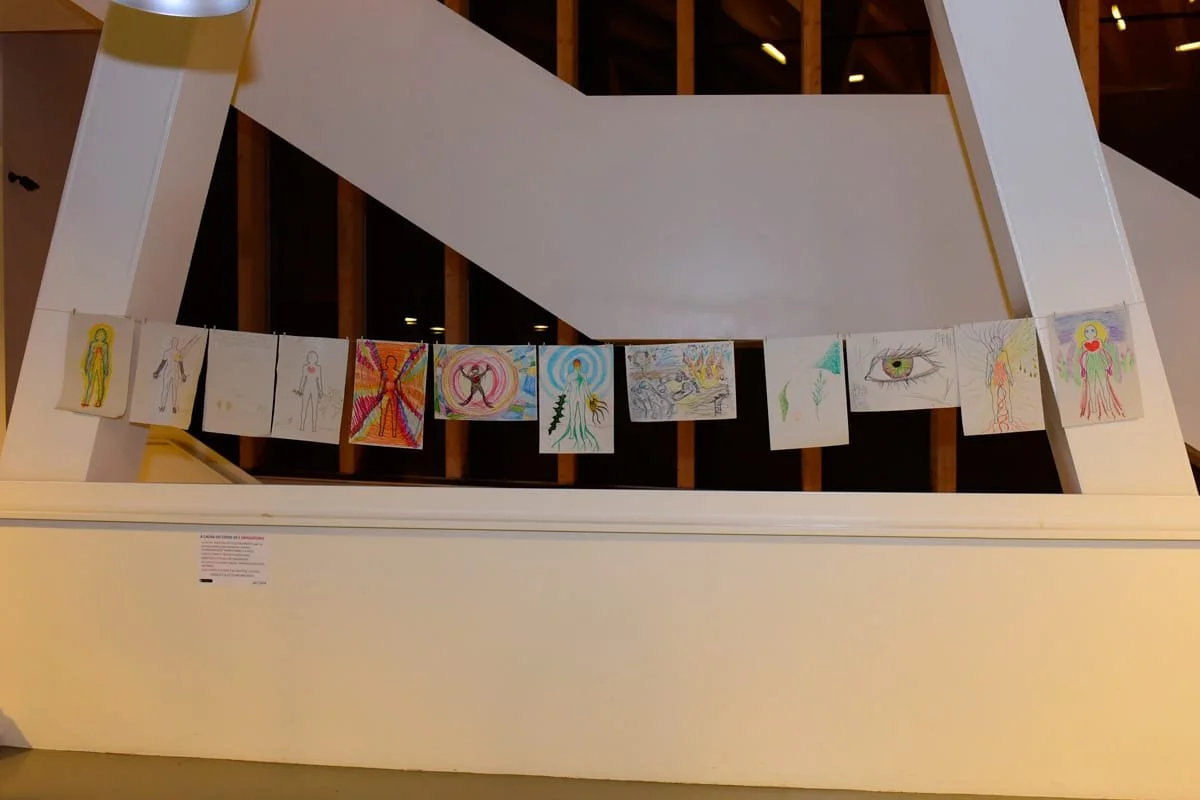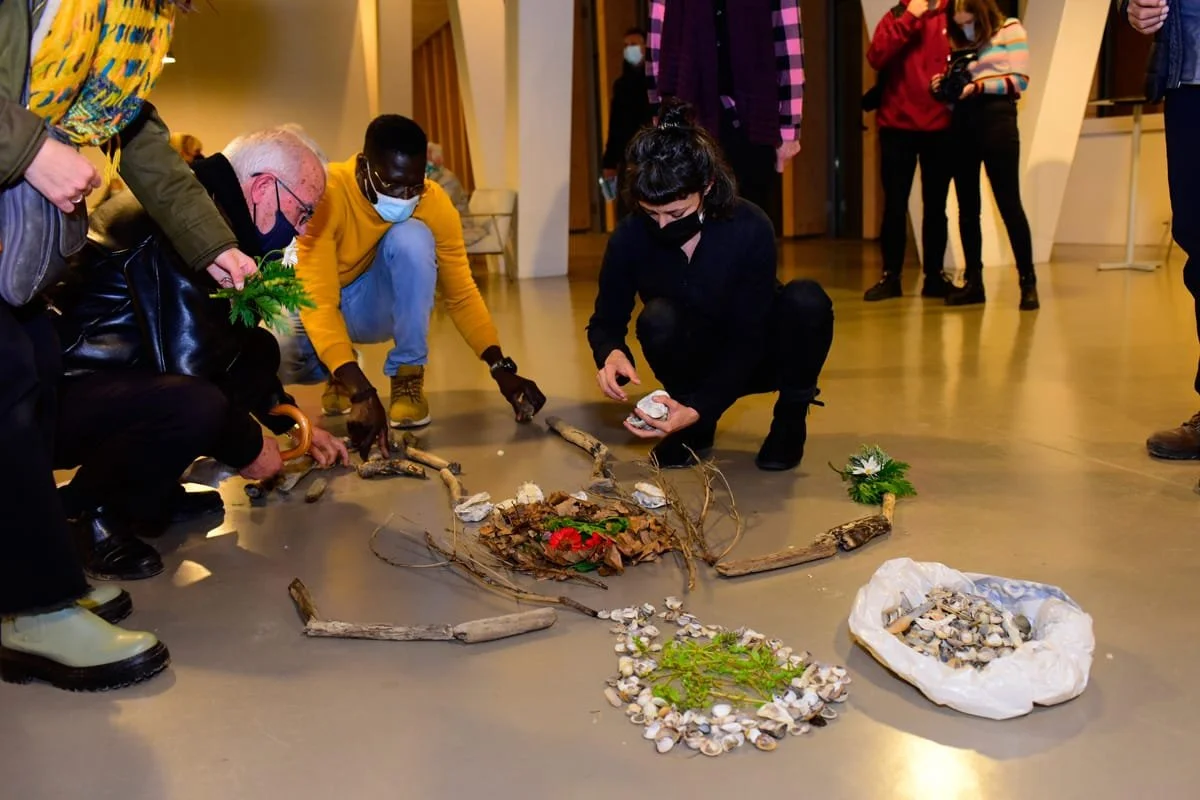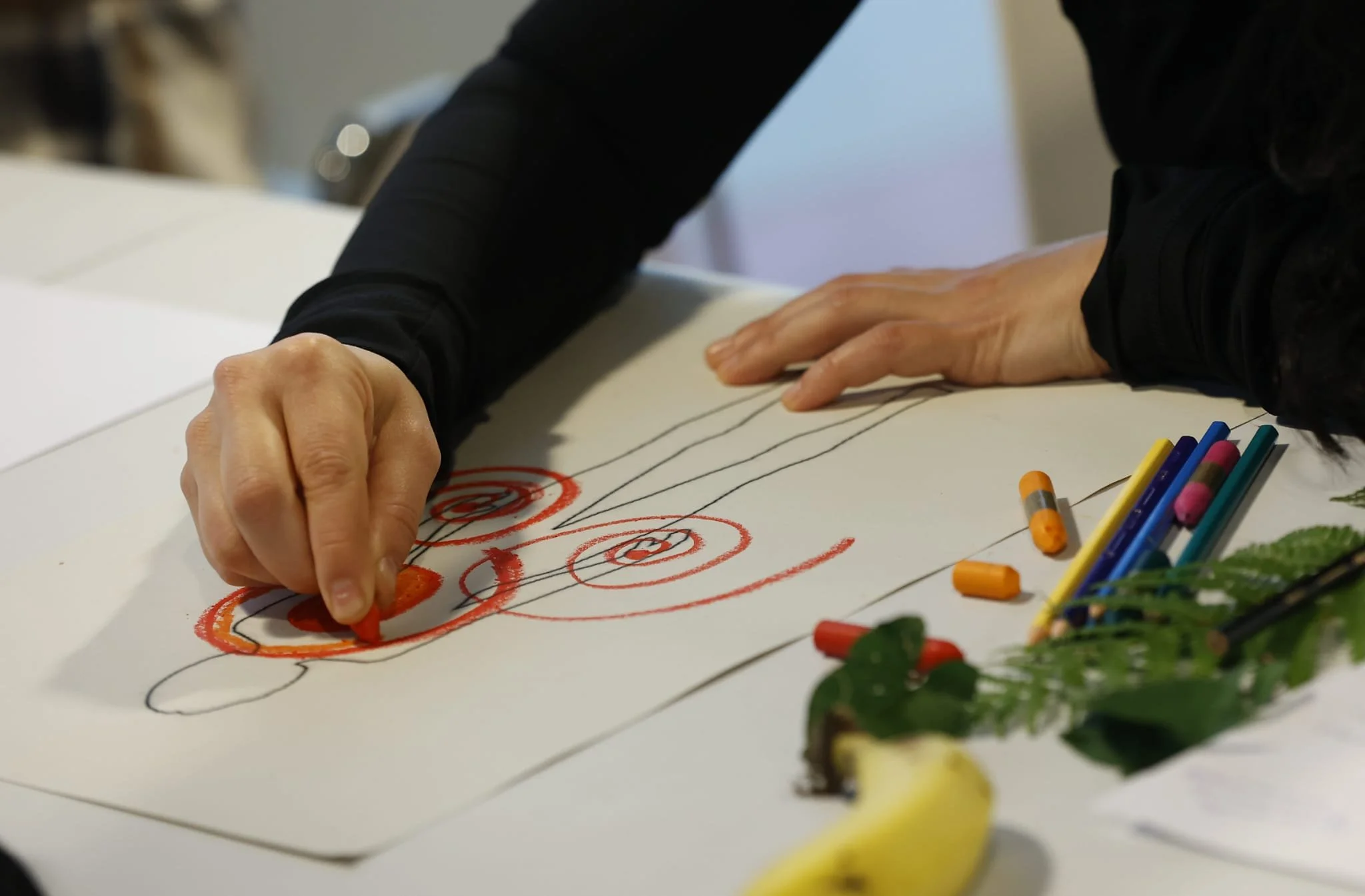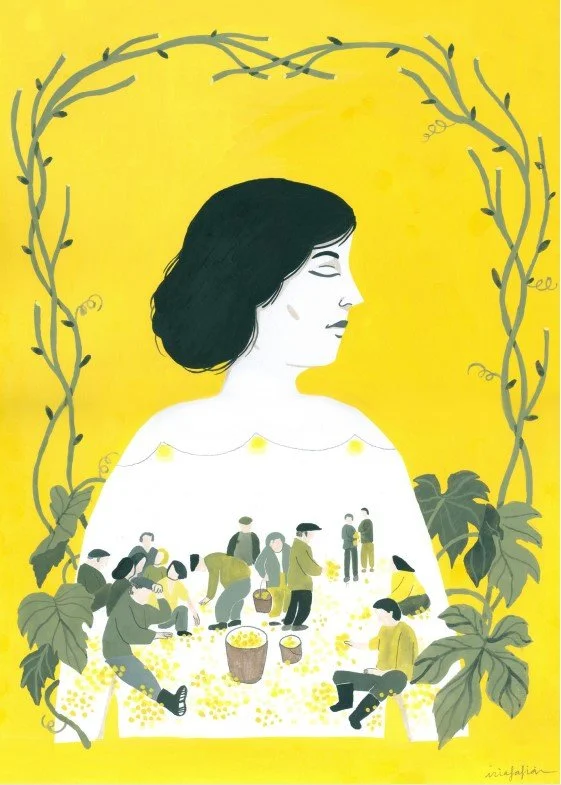Nostalgia for Nature: The Sarajevo Pathway in A Coruna
In A Coruña, Spain, the Sarajevo Pathway was designed and delivered as two separate, but interconnected, activities. In June 2021, twelve local citizens who are involved in the municipal Urban Gardens, were invited to reflect, both individually and collectively, on the role of nature in their lives. Applying the methods of memory work, immersion in nature, and a short eco-therapy mindfulness session, the participants each wrote a memory text that captured and shared their past feelings and connection to nature. A follow-up session, focusing on the individuals’ present experiences was completed in November 2021, with participants completing both an individual and a collective body map. Across both sessions, the participants were supported by two artists – a poet and an illustrator – who were invited to make a creative response, adding another layer to the creative element that is key to the Sarajevo Pathway and overall EM|Path approach. The local artists also became central to the facilitation of the exercise, bringing their own expertise and cultural knowledge to the process. The sessions were carried out in Spanish and Galician, the local languages. The outputs from both days were then exhibited in the Agora building, including the memory work and body maps of the participants, as well as the illustrations and poem by the local artists/facilitators.
“Stories connect us. With and in them, stories provide us the means to create meaning; through language, symbols, pace, rhythm, and beat, we create a foundation for telling and showing the world what is important to us, what matters. Inviting creative encounters with the past, present and future, The Sarajevo Process – a co-production approach that has been developed during the Connecting Nature project – provides a space for imaginative and innovative storytelling. Readers coming to this publication to learn about A Coruna’s award-winning urban gardens will be offered an opportunity to see the impact and power of the urban gardens in A Coruna through the eyes, ears, mouths, and hands of the gardeners themselves. In language and turns of phrase that reflect the deep connection each of them has with the plot of land they have been cultivating, tending, and caring for, the memory texts herein offer up beautiful testimonies of lived and shared experiences of nature: the slow movement of time across the four seasons and the associated sensory and sensual memories of nature – in one text, we are moved effortlessly through each season, starting with “Spring, with its incipient warmth, the changing soil smells and the scent of the wild roses; the Summer harvest; the corn husking in the Autumn; or even the chill of the Winter”; in another text, we are confronted with the sharp distinction between urban and natural spaces, and that ever-present feeling of nostalgia for another time, for freedom, for the care-free days of childhood: “[t]he road was an adventure, and the pine forest was our destination. We would play there until it was dark. It seemed like an infinite space, full of mysteries”; finally, in turns both loving and full of emotion, the gardeners share what it means to them to have their gardens: “[t]hat feeling of peace, of time standing still, I can still feel it now when I am in the garden” and “[n]ow the garden is my space, my garden where I grow crops, invite friends, have meals, and the place where I feel happy”. As they have cared for their small plots, so too, have the plots cared for them: cultivating in and among them a sense of community, togetherness and connection; tending to each of them in times of ill-health; and nurturing them, in their sad and joyful moments. Alongside the work of the gardeners, the book also includes a poetic response from poet Yolanda Castano, as well as a set of three illustrations by artist Iria Fafian. All together, they capture a moment in time, of people coming together to reflect on and share their memories of nature, and in so doing, they offer us an insight into the tangible and intangible ways in which we create meaning in and with the natural world all around us. “
Dimitra Xidous, Director, EM PATH WAYS


